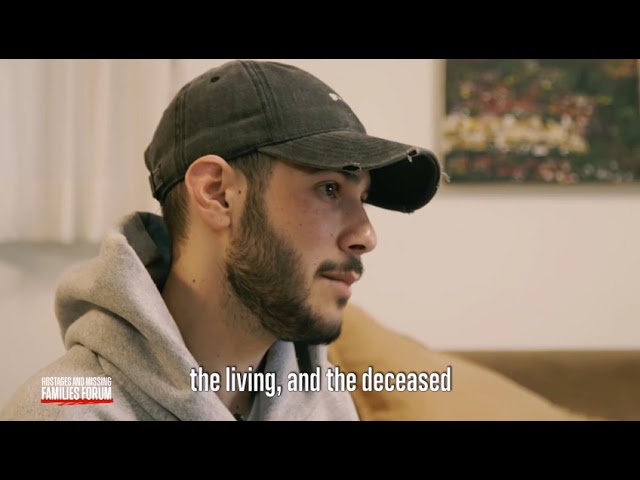|
Getting your Trinity Audio player ready...
|
A7- Captivity survivor Eliya Cohen spoke with Channel 12 News on Tuesday evening and shared a chilling account of his captivity.
He recalled the horrific events of October 7, when he and other people who fled the Nova Music Festival sought shelter in what later became known as the “Death Shelter.”
“We heard pickup trucks stopping—many pickup trucks—and shouting in Arabic. They threw the first grenade. Someone screamed, ‘Grenade!’ I jumped on Ziv, shielding her with my body. The first words that came out of my mouth were, ‘Ziv, I love you.’ The grenade exploded, killing everyone at the entrance. Ziv responded, ‘Eliya, I love you too.'”
“הפשיטו אותנו, אין יותר נאצי מזה”: לאחר 505 ימים בשבי, אלי-ה כהן מספר בריאיון ראשון על העינויים, ההרעבה וההתעללות במנהרות חמאס.
חודש וחצי מאז שחזר, הוא מנסה לבנות לעצמו שגרה חדשה. לחזק את הגוף שצריך התאוששות ולהעלות את הקילוגרמים הרבים שאיבד ולהתמודד עם השמיעה שנפגעה.… pic.twitter.com/3etuCORYAb
— החדשות – N12 (@N12News) April 1, 2025
He then witnessed Aner Shapira rising up and throwing grenades back at the terrorists. “Another grenade was thrown. He caught it and threw it back. I saw it with my own eyes. Everyone understood what he was doing. At some point, Aner was holding a grenade when they managed to shoot him. He fell to the ground, and the grenade exploded with him. That was the moment I said to myself, ‘I can’t believe this.’ The guy who was protecting us was gone.”
He also recounted that after Aner, others continued throwing grenades back. “I remember a young woman picking up a grenade and throwing it out—and then there was the last grenade, which ended up severing the hand of Hersh [Goldberg-Polin]. After that, no one got up to throw grenades anymore.”
At a certain point, Cohen was shot in the leg. He recited the Shema Yisrael prayer, opened his eyes, and saw three terrorists. “They were holding phones with flashlights, filming us, grinning madly. I will never forget those smiles. I go to sleep with that smile haunting me. I live with it. That was the smile of my kidnapping.”
On the way to Gaza, one of the hostages attempted to escape by jumping from the moving vehicle. “He decided to take matters into his own hands and said, ‘I’m jumping.’ We told him not to, but he did it anyway. The terrorists stopped the truck and shot him dead. We kept driving as if nothing had happened—as if a guy hadn’t just jumped and been executed.”
In Gaza, Cohen underwent surgery without anesthesia to remove the bullet from his leg. “No painkillers. Just a rag stuffed in my mouth. They told me, ‘You can’t scream. If the civilians outside hear you, they’ll storm in, and I won’t be able to protect you.'”
In the tunnels, he met other hostages and was subjected to Hamas’ psychological warfare. The terrorists abused them, sometimes stripped them, chained their legs, humiliated them, and, most of all, starved them. “You find yourself begging—and they enjoy it. They know they’re starving you.”
During his captivity, Cohen believed Ziv had been killed in the shelter. “In my heart, I never imagined she had survived. At first, it was unbearable—the realization that I had lost my girlfriend. We’ve been living together since the day we met.”
After the tunnel where he was held was bombed, Cohen and fellow hostage Alon Ohel were moved to another hiding place. Before Cohen’s release, he reassured Alon that his turn would come too.
“He can’t see out of one eye. He’s probably not in good shape. We had deep conversations. I told him, ‘Don’t forget where you came from and your family.’ We hugged and cried. I promised him that even when I got out, I wouldn’t forget him.”
Then came the moment Cohen learned that Ziv was alive. “As soon as we got off the ambulance, someone came up to me and said, ‘Welcome back to Israel.’ I looked at her and thought, ‘She’s about to tell me the news.’ Then she said, ‘Your parents are waiting for you at Kibbutz Re’im.’ And then she added, ‘And Ziv.'”




